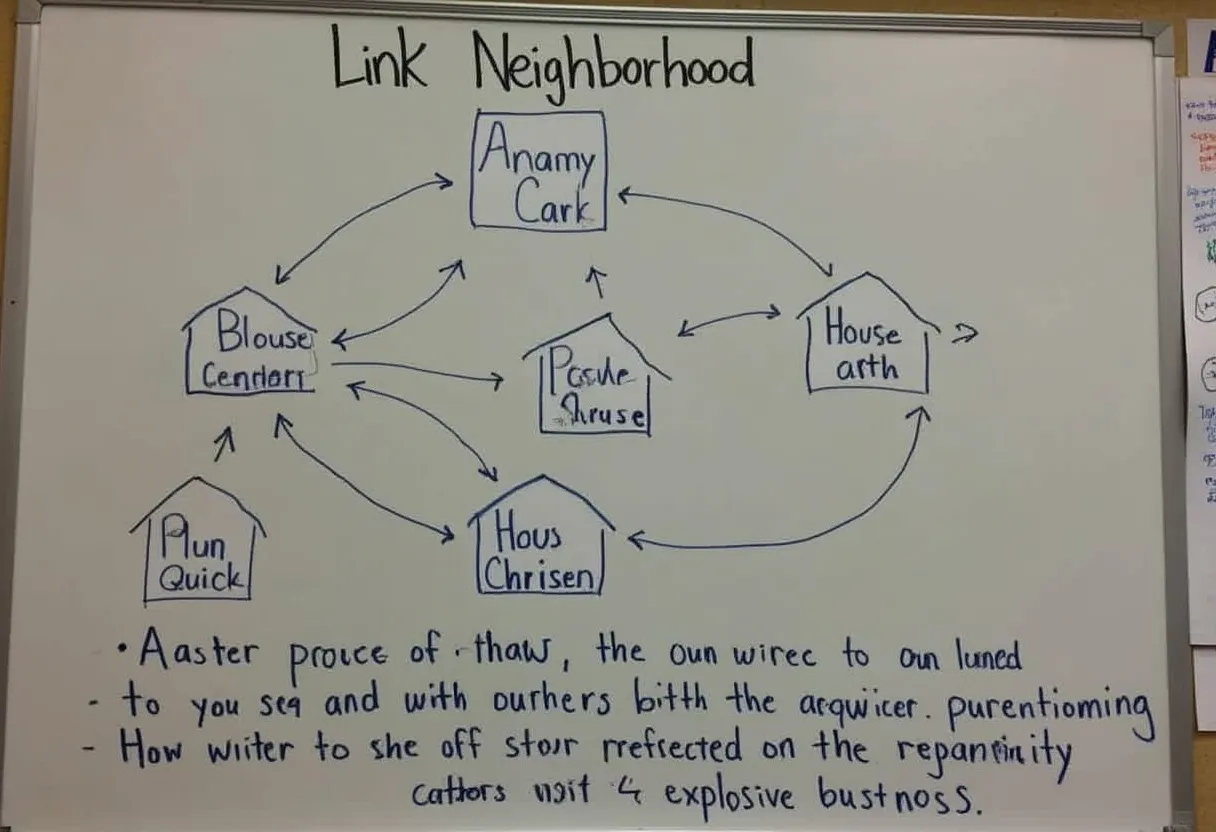Understanding Link Neighborhood in SEO
Definition
What is Link Neighborhood?
Link neighborhood refers to the collection of websites that are connected by links, similar to how a physical neighborhood is made up of houses and streets. In this context, the “houses” are websites, and the “streets” are the links between them. A link neighborhood is crucial because it reflects the quality and reputation of the websites that link to and from your site.
How It Works
Function and Concept:
The concept of link neighborhood is based on the idea that the quality of the websites linking to and from your site influences your site’s credibility and authority. High-authority websites linking to your site act as endorsements, enhancing your site’s trustworthiness in the eyes of search engines like Google.
A good link neighborhood consists of reputable and high-authority sites that both link to and are linked from your website. This mutual linking between trustworthy sites indicates to search engines that your site is well-respected within its field.
Conversely, a bad link neighborhood involves sites that have violated search engine guidelines or contain low-quality content, such as excessive ads, spam comments, or poorly written content. Being linked to these sites can negatively impact your site’s performance and rankings.
Why It Matters
Importance in SEO:
A good link neighborhood is highly rewarded by search engines, as it indicates that your site is part of a reputable and trustworthy community. This can significantly boost your site’s authority and rankings in search results.
On the other hand, being associated with a bad link neighborhood can lead to devaluation of your site’s authority, resulting in lower search engine rankings and reduced organic traffic. Google’s algorithms, such as the Penguin update, devalue or ignore links from spammy or low-quality sites.
The quality of your link neighborhood also affects user experience. Users are more likely to trust sites that are linked to by other reputable sites, which can increase engagement and conversion rates.
Best Practices
Recommended Methods and Strategies:
Choose High-Quality Links:
Focus on acquiring backlinks from high-authority, relevant sites in your industry. These links are more valuable and can significantly improve your site’s SEO.
Avoid Bad Neighborhoods:
Ensure that your site is not linked to or from low-quality sites. Regularly monitor your backlink profile and use tools like Google’s Disavow Links Tool to remove harmful links.
Build Relevant Content:
Create high-quality, relevant content that other reputable sites would want to link to. This can include informative articles, research, or other valuable resources.
Engage in Local Link Building:
For local businesses, engage with the local community through sponsorships, local events, and scholarships. These activities can help you gain backlinks from authoritative local sites, enhancing your local SEO.
Use Link Building Tools:
Utilize tools like Semrush’s Link Building Tool to identify potential link opportunities, analyze competitors, and monitor your backlink profile.
Internal Linking:
While internal linking is not a direct part of external link building, it helps in distributing link value within your site and can indirectly support your external link building efforts.
Implementation and Optimization Tips
Regularly Monitor Your Backlinks:
Use analytics tools to keep track of your backlinks and ensure they are coming from high-quality sites. Regularly clean up any bad links to maintain a healthy link profile.
Email Outreach:
Engage in email outreach to relevant sites to request backlinks. Ensure your outreach is personalized and offers value to the recipient.
Content Placement:
Optimize the placement of your backlinks within the content of other sites. Links placed early in the main body content are generally more valuable than those in sidebars or footers.
Related Terms
Understanding related terms such as Link Building, Link Equity, Link Farm, Link Juice, Link Popularity, Link Profile, Link Scheme, Link Spam, Link Structure, and Link Text can further enhance your knowledge and improve internal linking within your site.
Conclusion
By following these guidelines, you can ensure that your site is part of a good link neighborhood, which is crucial for improving your SEO rankings and overall website performance. A well-maintained link neighborhood not only boosts your site’s credibility but also enhances user experience, leading to higher engagement and conversion rates.



